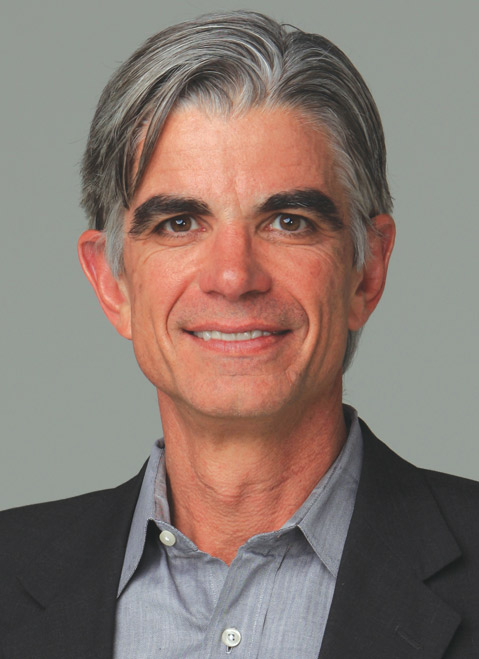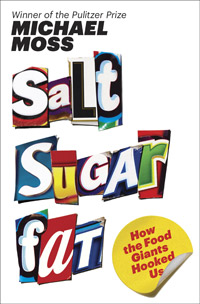Michael Moss Tackles the Unholy Trinity of Food
Author of Salt, Sugar, Fat Gives Free UCSB Lecture
“I’m happy that the book is not only a wake-up call to the food industry but also empowering to people,” explained author and New York Times journalist Michael Moss in a recent telephone interview about his book Salt, Sugar, Fat. “Once you get to see all the things they do to get you to eat processed foods, it helps level the playing field when you’re shopping.”
Moss, who won the Pulitzer Prize for uncovering the meat industry’s perilous use of “pink slime,” will be talking about how the larger food industry hooks us on unhealthy “goods” at a free lecture at UCSB’s Campbell Hall on February 22. “I think of it as a bit of a detective story,” he said of the talk, which will also include plenty of “nifty” slides, “the process of my journey writing the book.”

Initially, Moss was writing stories for the New York Times about “accidental and unintentional contamination of food,” such as a salmonella outbreak in peanuts or E. coli in hamburger meat. But one of his best sources suggested he focus on what ingredients companies add intentionally, specifically saturated fat. That led him to “the holy trinity of the processed-food industry: salt, sugar, and fat.” Though he could have explored “some 5,000 other additives” approved for use in food, Moss realized that those three are what’s causing the most problems with obesity, diabetes, and other public-health issues.
Beyond his ability to provide a gasp-inducing stat per page, Moss is best at crafting vivid profiles of food industry insiders who’ve realized that their work has gone wrong. Take former Coca-Cola exec Jeffrey Dunn, whom Moss said “is paying his karmic debt selling carrots now.” The author explained, “Inside the largest companies, there’s, if not regret, then a sense they’ve become largely responsible for this public-health issue and that something has to be done, for the company’s own survival if nothing else.”
His research took the typical journalistic path of following the money, but Moss also grew fascinated with the language used by the food industry, such as “bliss point,” which Howard Moskowitz came up with while working for Dr. Pepper. “Our liking for sugar isn’t infinite,” explained Moss. “Think of adding sugar to coffee and how you can quickly get to a yuck point. It’s actually a bell curve, but at the top of the curve is the bliss point for sweetness, not too little or too much. It’s not the precise engineering of a bliss point for ice cream or sodas that’s the problem — it’s that companies then engineered bliss points throughout the store, adding sugar to breads, yogurts, pasta sauce. It teaches us to expect sweet in everything we eat.” And given children’s bliss points are significantly higher than adults’, this means, as Moss vividly put it, “You’ll have an even bigger wrestling match trying to get your kids to eat broccoli, which is bitter, not sweet.”

While learning is the first step, Moss hopes for systemic change, too. “Why does a basket of blueberries have to cost as much as a frozen pizza that could feed a whole family?” he asked, noting that processed foods tend to get more government subsidies than fresh. His hopes for top-down changes from the Obama administration are fading, but he also appreciates the practical marketing issues: How can you make an ad campaign for broccoli? (He actually got an ad agency to try. Click here to see.) “Of course, if the processed-food industry had to sell vegetables,” he admitted, “no doubt they’d want to put a cheese sauce on the broccoli and then a caramel glaze.”
In the meantime, he’s hoping his book and talk can help people “level the playing field while shopping.” He explained, “I’m not about to end my consumption of processed foods, but I want to control them and not let them control me.”
4•1•1
Michael Moss gives a free talk at UCSB’s Campbell Hall on Saturday, February 22, at 3 p.m. See artsandlectures.sa.ucsb.edu.



